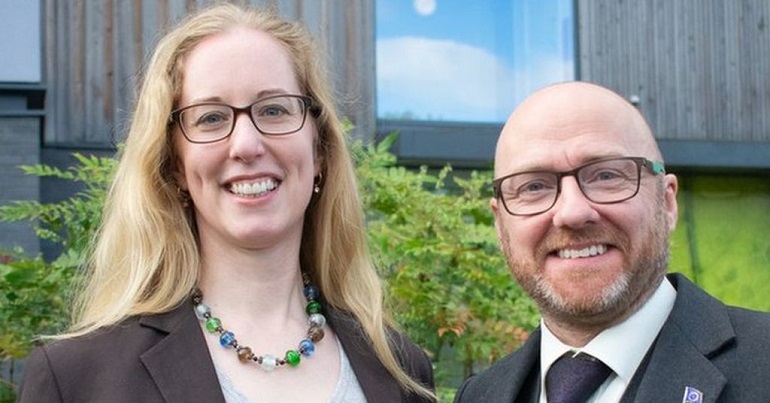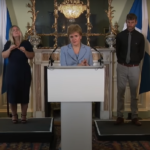Of course they were bluffing about Scottish currency – when do these people tell the truth?
It should come as no surprise. The extraordinary admission from a government minister that Westminster would find a way to make currency union with Scotland work is, in fact, entirely ordinary. The idea that Westminster politicians have put political convenience ahead of rigorous honesty is no newer than the notion that what they say in public is very different from what they know in private to be the truth.
Let’s review the story. A minister, who the Guardian believe will be very involved in negotiations after a yes vote said to the paper “Of course there would be a currency union”. Perhaps more importantly, the Treasury admitted that:
“Westminster’s emphatic rejection was taken on the specific advice of the former chancellor and Better Together chief, Alistair Darling, and the main Downing Street Scottish adviser, Andrew Dunlop. The Treasury had assumed that Osborne would stick to his position of saying that a currency union would be highly unlikely.
“The decision to toughen up the message was made because Darling believes Better Together needs to do more than win the referendum – it needs to kill off independence with an emphatic win. “Alistair and Andrew are running the show – we just did what they said,” one Treasury source said.”
In other words, the comments from Osborne, Balls and Alexander were a political choice of the No campaign chief, not the economic decision of the Treasury. It was a bluff. It was bluster. They said things not because they believed them to be true, but in order to win the referendum.
None of this should be a surprise. As many people said at the time, the idea that a Westminster establishment so mutually intertwined with a city of London desperate to maintain the price of the pound would want to chop the second richest region of the UK out of its currency union is ludicrous.
But more importantly, what I never understand is why anyone would trust the people saying this. These are the same Lib Dems who promised to vote to scrap fees before trebling them; the same Conservative party which said its NHS reforms wouldn’t mean privatisation; the same Labour party who told us that Iraq had weapons of mass destruction deployable within 45 minutes.
This is the Westminster establishment which five years ago was caught out lying about money in a very different way when the Telegraph published their expense revelations; the same Mssrs Balls and Darling those who flipped their homes repeatedly. It’s the same Mr Alexander who insisted on endlessly repeating lies that pension reforms were about saving money; the same Mr Osborne as the one who claimed in the recent budget that we’re borrowing less because he delayed the repayment of some loans.
The idea that, in the fight to save their beloved union, these people wouldn’t significantly exaggerate the risks over things like currency is absurd. Of course they were always, at the very least, stretching the truth.
But now they have a problem. Because this was the No campaign strategy. As the same article says:
“We went early with the currency union announcement in the hope that a rational, rather than an emotional, judgment will prevail among voters,” one Better Together source said. “But people have got to believe we mean it.”
Now that the cat is out of the bag, these lying liars can spin all they like, but their tied up in their own untruths. The Scottish people would be fools to believe a word they say. And campaigns lose when they take the electorate for idiots. Already, people were fed up with silly fear-mongering. Already, a significant number believed that the government was bluffing. Now, they know that at least one minister at the centre of the campaign doesn’t believe what’s being said either.
The Westminster elite which lied its way into a war which killed hundreds of thousands of people, which cheated on its expenses and bullshits its way through economic data has been caught out putting a desire to fear-monger ahead of a wish to be frank with the people of Scotland. Every time they pop up with some new scare story over the next six months, people will remember that.




But also – why wouldn’t the Tories want Scotland locked into a devomax relationship with rUK?
The arrangement the SNP propose, keeping the Scottish economy perpetually under the control of the Chancellor of the Exchequer and the Bank of England without any democratic input from Scotland whatsoever, is obviously beneficial to the finance industry, which is the major source of donations to the Conservatives.
The plan by the SNP to install devomax if Yes wins is what made me decide I had to vote no.
“But more importantly, what I never understand is why anyone would trust the people saying this. These are the same Lib Dems who promised to vote to scrap fees before trebling them; the same Conservative party which said its NHS reforms wouldn’t mean privatisation; the same Labour party who told us that Iraq had weapons of mass destruction deployable within 45 minutes.”
Yet you believe the unattributed statement which is the basis for this piece, because it suits your view. Though it comes from a government minister, we are told (the hot money’s on Vince).
Why on earth would anyone think that currency union would be a good thing? Giving up control over the key levers of economic policy? And probably giving up other big policy goals as part of the deal.
Sham independence, a laughable folly. Show without substance. Or as I believe they say in Morningside, fur coat and nae knickers.
An independent currency is the way to go. Anonymous ministers giving a nod and a wink to Salmond about a deal on currency union is bad news, not some sort of validation of the Indy case.